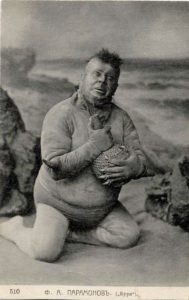Still torn on whether to sit through Anonymous or ignore it? I think I’ve found the middle ground – check out People Being Stupid About Shakespeare…or Someone Else, the most in depth review/rebuttal of the movie I’ve yet seen. The author goes through the major points of the movie (the movie, not the Oxfordian theory in general), and then questions some of the more glaringly creative omissions and additions:
…Dekker, Jonson, and a guy with a gut representing, as the IMDB informs
me, Thomas Nashe. And Christopher Marlowe. In 1598. Marlowe makes fun of
Dekker for the failure of Shoemaker’s Holiday and claims
preeminence among historical playwrights. Which is funny, since Marlowe
hadn’t written a history play in five years at that point, largely
because he was murdered in 1593. And Dekker’s play wasn’t written until
1599 (a fact recorded in that famous and fraudulent monument to
government conspiracy otherwise known as Henslowe’s Diary). But
Marlowe’s ghost probably knows that and is just messing with Dekker’s
head. Nashe also kind of hangs around for the rest of the film, even
after his death in 1601…
I know it’s a movie, and I know that the director certainly took many liberties. I think the important question will be what Oxfordians do with the story. It’s not like we lovers of Shakespeare saw Shakespeare in Love and ran off to tell all of our friends, “Yes! It was *just* like that! Go see this movie and you’ll know everything about Shakespeare’s life!”
So the million dollar question is whether the Oxfordians will do that. Or will they take each piece that *does* support their case and say, “Yes, that bit is true,” while simultaneously disowning the flat out provably incorrect bits with “Of course he changed some stuff, it’s just a movie.”
(* I also notice that my pal Bardfilm was the first to comment on this post, so he clearly beat me to the punch on this one. )

 When I first saw this link go by I immediately thought “Allen Ginsberg on Shakespeare? So, what, like F___ Shakespeare?” 🙂
When I first saw this link go by I immediately thought “Allen Ginsberg on Shakespeare? So, what, like F___ Shakespeare?” 🙂